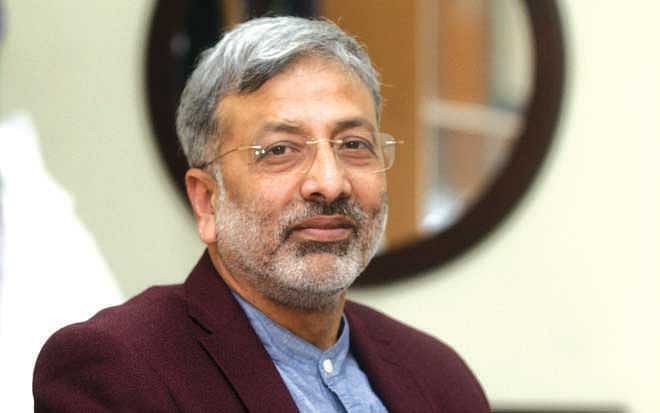Shakir's Gift
Shakir's Gift

To his patients, he is an angel who has pulled them back to life from certain death. This doctor from Delhi may not be able to save all his neurological patients—but he excels in saving patients on whom other doctors had given up hope.
The doctor, Dr Shakir Husain is considered a master neurosurgeon in the region. He moves around the globe, especially in Asia, including Bangladesh-- treats patients in public hospitals free of cost, and provides hands-on training to young physicians.
“Dr Shakir visits Bangladesh three to four times a year and conducts 15 to 20 surgeries. He also visits some 30 to 40 outdoor patients,” says Dr Sharif Uddin Khan, associate professor of neurology at Dhaka Medical College.
“He is not a doctor, but a magician,” says Anwarus Sadat Jewel, who has seen how the neurologist has treated and cured his 52-year-old mother Anjuman Ara at a Delhi hospital only in three days after a week of suffering from brain haemorrhage at a renowned hospital in Dhaka.
“She is now completely fine. May Allah bless Dr Shakir. We need doctors like him,” says Jewel of Naogaon.
Fast recovery of Anjuman was possible because of a sophisticated medical technology called interventional neurosurgery where the surgeon uses catheters and radiology to diagnose and treat certain diseases of the brain and the nervous system, including stroke, brain haemorrhage or vein ruptures.
Interventional neurosurgery has been practiced in a major way only for the last 15 to 20 years, and has come to Bangladesh only recently.
“Basically, we repair the pipes [blood vessels] in a way that requires only two to three days whereas traditional open surgery takes 15 days to one month for recovery,” says Dr Shakir Husain in an interview in Dhaka during his recent visit.
Dr Shakir Husain is the first neurologist to enter the Neurointerventional arena in India and treated thousands of critical patients of neurology.
He now practices at Max Super Specialty Hospital and Saket City Hospital in Delhi and is director, Interventional Neurology and Stroke Program at the Max Institute of Neurosciences.
After completing MBBS from RNT Medical College, Udaipur, he did a fellowship in Interventional Neuroradiology at the University Hospital Zurich, Switzerland in 1999.
Dr Shakir first came to Bangladesh in 2002 in an international conference and was overwhelmed by the enthusiasm of the young doctors who were eager to study neurology.
Concerned by the gravity of neurological problems people face in Bangladesh, he started to make frequent visits here.
Whenever medical students from Bangladesh go to India for studying interventional neurology, Dr Shakir helps them obtain tuition fee waivers, and looks after their wellbeing, says Dr Sharif.
It was Dr Husain, who basically trained the neurologists now teaching and practising at the National Institute of Neurosciences and Hospital (NINS) in Dhaka that was established last year and has planned to start a postgraduate programme on neurology and neurosurgery next year.
“It is my mission…to treat patients, to teach students. It is fraternity, friendship,” Shakir Husain tells The Daily Star in an exclusive interview on the sideline of an international neurology seminar held on December 3-4 in Dhaka.
He says that neurological problems, especially stroke is a huge burden for Bangladesh.
According to NINS Joint Director Professor Dr Badrul Alam, 3.3 persons in each 1000 in Bangladesh suffer stroke and a majority of them face some form of disability, and many die.
“The problem is acute as there are fewer facilities here,” says Dr Shakir, adding that NINS is the only dedicated institute to treat the neurology patients whereas there should have been many more.
While NINS, a public institute, has three dedicated cath labs for neurology patients, which is something extraordinary in Asia, generally there is a huge shortage of such labs in Bangladesh, he says.
Also, the Society of Neurologists of Bangladesh has only 150 members, which is too little to treat a huge number of patients, whereas there are 350 neurologists only in Delhi, India, Dr Shakir says.
The Bangladesh government, therefore, needs to train more physicians and technicians on neurology and neurosurgery and set up more dedicated cath labs.
“What is good in Bangladesh is the enthusiastic students who are young. So, there are huge potentials,” Dr Shakir Husain says.